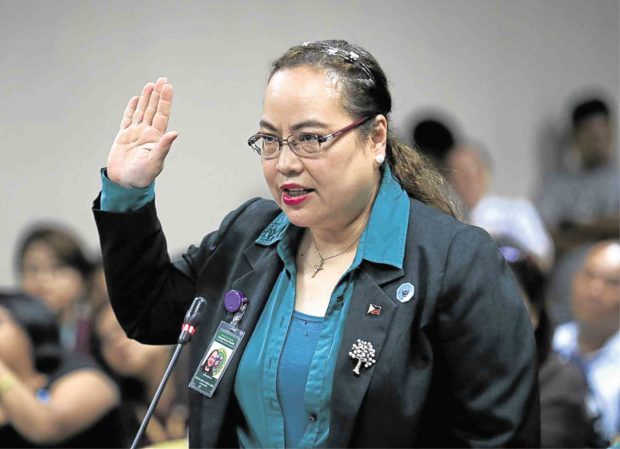DOH to Metro Manila mayors: Help curb HIV rise

Paulyn Ubial
With the majority of people living with Human Immunodeficiency Virus (HIV) coming from the National Capital Region, the Department of Health has asked Metro mayors to take proactive steps to stop its spread.
“The fight against HIV and Acquired Immune Deficiency Syndrome (AIDS) needs a concerted and coordinated response from all stakeholders and all local and national chief executives. We must start now to reverse the trend in HIV and AIDS epidemic and save more lives,” Health Secretary Paulyn Ubial said in a recent meeting with the mayors or their representatives.
Ubial added that as of June 2017, about 65 percent of HIV cases in the country were from Metro Manila and adjacent provinces.
Based on data from the DOH-Epidemiology Bureau, the number of people with HIV is projected to rise from an estimated 67,000 by the end of 2017 to 201,000 in 2025 if no drastic intervention is done now, she said.
“The picture of the present epidemic shows that [the] majority of new infections are among males who have sex with males (MSM) and transgender women who have sex with males (TGW) aged 15 to 24 years old,” Ubial pointed out.
Article continues after this advertisementDOH data also showed that half of MSM and TGW start to have sex at 16 years old while some become sexually active starting at age 12.
Article continues after this advertisement“However, intervention measures can only be made available and accessible when they are 18 years old, and their first HIV test happens later at around 22 years old. This is compounded by the findings on the initiation of treatment among people diagnosed with HIV which occurs much later at 28 years old,” Ubial said.
In response, the Metro officials signed a commitment to fast-track the implementation of high-impact HIV interventions. The goals are: increase knowledge of HIV transmission, prevention and services; prevent new infections especially among 15 to 24 years old; promote HIV testing among those practicing risky behaviors and their partners; treat all diagnosed with HIV; and eliminate transmission from mother to child.
A recent UNAIDS report said the number of new HIV infections in the Philippines has risen by 140% in the past six years. The country has the fastest growing HIV epidemic in the Asia and the Pacific region, it added.